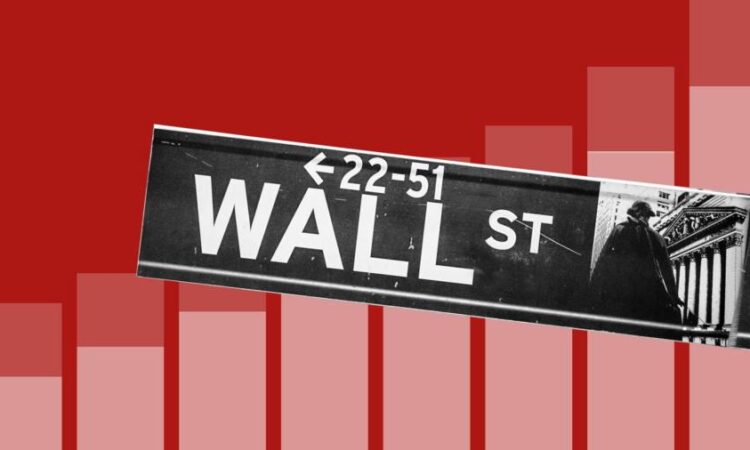
Receive free Markets updates
We’ll send you a myFT Daily Digest email rounding up the latest Markets news every morning.
Wall Street stocks rallied on Monday as investors weighed the outlooks for the world’s two biggest economies and prepared for this week’s wave of US corporate results.
Wall Street’s benchmark S&P 500 closed 0.4 per cent higher, driven by tech and financial stocks, while the tech-focused Nasdaq Composite gained 0.9 per cent.
Helping boost US equities at the opening bell was a manufacturing index compiled by the Federal Reserve Bank of New York that came in well above expectations, in a sign that businesses remain resilient to rising interest rates.
The index fell to 1.1 in July but remained well above the minus 4.3 consensus forecast. The fact that the reading hovered above zero meant that the majority of survey respondents continued to report an overall expansion in business activity.
Although not the most geographically broad of top-tier surveys, the manufacturing survey builds on data points from last week that point to a resilient US economy. Those included the inflation rate slowing more than expected in June, several big banks reporting strength in their lending divisions, including in consumer segments, and preliminary US consumer sentiment for July jumping to its highest level since September 2021.
Adding to the buoyant mood in markets, Goldman Sachs economists trimmed the probability of the US entering a recession in the next 12 months to 20 per cent from 25 per cent owing to recent data that has shown the economy to be resilient.
“An improving economic backdrop appears to be propping up sentiment,” Wells Fargo economists wrote on Friday. “Economic data have continued to surprise to the upside in recent months, as the economy has weathered aggressive Fed tightening a bit better than anticipated.”
The yield on two-year Treasuries fell slightly to 4.74 per cent, while the yield on the 10-year note dipped to 3.81 per cent.
Electric-car maker Tesla is the first of the tech heavyweights to report this week, alongside US lenders Bank of America, Goldman Sachs and Morgan Stanley.
Equities slipped in Europe and Asia after weak growth data from China signalled that the world’s second-largest economy struggled to bounce back from three years of severe coronavirus pandemic restrictions.
Europe’s region-wide Stoxx 600 gave up 0.6 per cent, led lower by declining cyclical stocks, as investors fretted that low consumer spending in China could damp demand for the region’s exports.
France-based luxury groups LVMH and Hermès International both lost about 4 per cent, taking the Cac 40 index down 1.1 per cent. Swiss company Richemont dropped 10.4 per cent.
The declines for those stocks came after official data on Monday showed China’s gross domestic product rose 0.8 per cent quarter on quarter in the April to June period. The reading was well below the 2.2 per cent recorded in the previous three months.
China’s benchmark CSI 300 index extended the trend, slipping 0.8 per cent, while Hong Kong’s stock exchange suspended trading owing to a weather warning. Japanese markets were closed for a holiday.
The country’s post-pandemic “revival is losing steam after the initial release of pent-up demand built during the zero-Covid policy era, while exports are falling amid ebbing global demand”, said Duncan Wrigley, chief China economist at Pantheon Macroeconomics.
The disappointing data weighed on oil prices with Brent crude, the international benchmark, settling 1.7 per cent lower at $78.50 a barrel, while US marker West Texas Intermediate fell by a similar percentage to $74.15 a barrel. China is the world’s second-largest oil consumer after the US.

Investors’ focus turned to the meeting of China’s ruling politburo later in the month, where policymakers are expected to consider further possible support for the economy.
“Today’s data raises odds of more stimulus measures from China over the coming weeks,” said Mohit Kumar, chief Europe financial economist at Jefferies.
“Given the market expectations have already been lowered on the China growth story, we could get some upward surprise from stimulus measures which would support equity markets in the short term,” he said.





